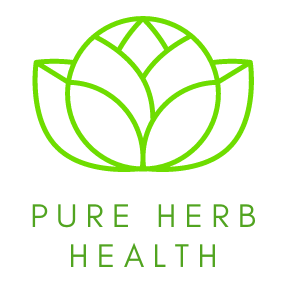Vitamin C overdose is common especially if you don’t know how much you need per day. Vitamin C, also called L-ascorbic acid, is a water-soluble vitamin that is naturally present in some foods, added to others, and available as a dietary supplement.
Humans, unlike most animals, are unable to synthesize vitamin C endogenously, so it is an essential dietary component.
What does vitamin C do in the body?
- Vitamin C supports growth and development.
- It is a type of antioxidant, so it helps protect the body from free radicals that damage and destroy otherwise healthy cells and it has been shown to also regenerate other antioxidants within the body, including alpha-tocopherol (vitamin E).
- Vitamin C plays a role in collagen formation (Collagen is an essential component of connective tissue, which plays a vital role in wound healing) and also in the formation of carnitine, hormone, and amino acid.
- It is essential for bone and blood vessel health and wound healing and facilitates recovery from burns.
- Vitamin C plays an important role in immune function and improves the absorption of nonheme iron, the form of iron present in plant-based foods.
In this respect, getting enough of the nutrient is just one way you can support your body’s natural defences against illness. This is how it gained its reputation as a virus-fighting vitamin and that is why people take a lot of it during the flu and the common cold.
Because the body doesn’t make or store vitamin C, it’s important to include it in our diet. Not having enough vitamin C can lead to a potentially deadly condition known as scurvy, which is characterized by fatigue or lassitude, widespread connective tissue weakness, and capillary fragility.
Oranges and orange juices are perhaps the best-known sources of vitamin C; other dietary sources of vitamin C include tomatoes, potatoes, broccoli, strawberries, sweet peppers etc.
 What is the daily requirement for vitamin C?
What is the daily requirement for vitamin C?
The average adult woman requires 70mg of vitamin C a day while the average man requires about 90mg. Recommended amounts are higher for pregnant and nursing women. The maximum recommended amount, or upper limit, is 2,000mg per day for all adults.
How much is too much?
The answer is yes, taking more than 2000mg per day amounts to an overdose. This is usually possible when one takes several supplements containing vitamin C.
Nearly 50,000 instances of vitamin toxicity are reported annually to US poison control centres. According to National Health and Nutrition Examination Survey (NHANES) data.
Up to 10 g/day of vitamin C is sometimes taken for unproven health benefits, such as preventing or shortening the duration of viral infections or slowing or reversing the progression of cancer or atherosclerosis.
Such doses may acidify the urine, cause nausea and diarrhoea, interfere with the healthy antioxidant-prooxidant balance in the body, and, in patients with thalassemia or hemochromatosis, promote iron overload.
Problems with vitamin C overdose
Hypervitaminosis C, that’s what vitamin c overdose, is called medically. The most common side effect of high vitamin C intake is viz:
- Digestive distress viz:
-
- Abdominal pain.
- Cramps.
- Diarrhoea.
- Nausea (and possible vomiting).
- Acid reflux.
- Others
- Headaches.
- Sleeping problems.
- Approximately 70%–90% of vitamin C is absorbed in moderate intakes of 30–180 mg/day.
However, at doses above 1 g/day, absorption falls to less than 50% and absorbed and unmetabolized ascorbic acid are excreted in the urine as oxalate, a waste product.
Under some circumstances, oxalate may bind to minerals and form crystals that can contribute to the formation of kidney stones, especially in individuals with renal disorders.
High vitamin C has the potential to increase the amount of oxalate in the urine, thus increasing the risk of developing kidney stones. In one study, adults took a 1,000-mg vitamin C supplement twice daily for 6 days, and the amount of oxalate they excreted increased by 20%.
Instances of kidney failure have also been reported in people who have taken more than 2,000 mg in a day. However, this is extremely rare, especially in otherwise healthy people.
- Vitamin C is known to enhance iron absorption.
There are 2 types of iron viz (the Heme (found in animal products) and the non- Heme irons (found in plant-based products). The body does not absorb non-heme iron as efficiently as heme iron.
Vitamin C binds to this non-heme iron thus making it much easier for it to be absorbed. This is an important function, especially for individuals who get most of their iron from plant-based foods
One study found that participants’ iron absorption increased by 67% when they took 100 mg of vitamin C with a meal. However, individuals who have conditions that increase the risk of iron accumulation in the body, such as hemochromatosis, should be cautious with vitamin C supplements.
Under these circumstances, taking vitamin C in excess may lead to iron overload, which can cause serious damage to the heart, liver, pancreas, thyroid, and central nervous system.
Iron overload is highly unlikely if one doesn’t have a condition that increases iron absorption. Additionally, iron overload is more likely to occur if you consume excess iron in supplement form.

- Vitamin C becomes pro-oxidant.
Under certain conditions, vitamin C can act as a pro-oxidant, potentially contributing to oxidative damage. A few studies in vitro have suggested that by acting as a pro-oxidant, supplemental oral vitamin C could cause chromosomal and/or DNA damage and possibly contribute to the development of cancer.
- The lower level of vitamin B12 and copper.
Reduced vitamin B12 and copper levels were noticed in a patient with a high intake of vitamin C. Also, there is accelerated metabolism or excretion of ascorbic acid, erosion of dental enamel, and allergic responses.
- High risk of hemolysis.
Hemolysis is known to be common in patients with an inherited disorder called G-6- PD deficiency who are on high doses of vitamin C (a condition in which red blood cells are destroyed).
- Lowers the effectiveness of drugs.
Combining vitamin C with an anticancer drug called bortezomib (a targeted therapy that blocks several molecular pathways in a cell, causing cancer cells to die) has been studied in cell cultures and animal models and studies showed that vitamin C given by mouth made bortezomib less effective.
Benefits of high dose of vitamin C
- Reduces the level of serum uric acid.
Several metabolic studies and a recent double-blinded placebo-controlled randomized trial have shown that higher vitamin C intake significantly reduces serum uric acid levels due to increased urinary levels of uric acid and thus is associated with a lower risk of gout. (Gout is the most common and excruciatingly painful inflammatory arthritis in adult males.)
- The slow growth of cancer cells.
Laboratory studies have shown that high doses of vitamin C may slow the growth and spread of prostate, pancreatic, liver, colon and other types of cancer cells. Some laboratory and animal studies have shown that combining vitamin C with anticancer therapies may be helpful, while other studies have shown that certain forms of vitamin C may make chemotherapy less effective.
How is high-dose vitamin C taken?
Vitamin C may be given by intravenous (IV) infusion or taken by mouth, although much higher blood levels are reached when given intravenously.
Investigation
- Liquid Chromatography Electrochemical Detection
Prevention
High vitamin C doses can be easily prevented and the potential side effects avoided by reducing the dose intake.
Treating Vitamin C overdose
There are no hard and fast rules in treating vitamin c overdose. Treatment is symptomatic.
Conclusion
Vitamin C is generally safe for most people especially when gotten from foods rather than from supplements. A high dose of vitamin C risks one experiencing side effects, most of which are digestive issues. However, more serious consequences, such as iron overload and kidney stones, may also result.

